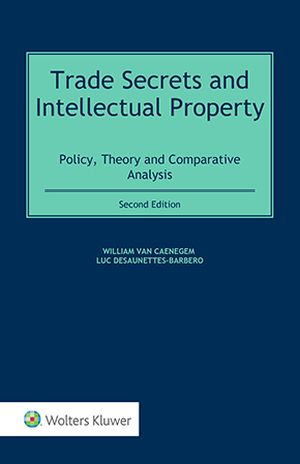
Trade Secrets and Intellectual Property, currently in its second edition, is a unique book delving deep into trade secrets and intellectual property (IP) laws. Trade secrets law is probably the least harmonized part of IP law. Nonetheless, there is a growing realization that variable rules concerning trade secrets impact investment decisions, multinational businesses, and hiring policies. Recently, this realization has elicited the introduction of a new Trade Secrets Directive in the EU, which has harmonized trade secrets law across the Union. Nonetheless, agreement about the policy underpinnings, theoretical basis and economic impacts of trade secrets law remains elusive around the globe. Legal approaches vary fundamentally, and the application of the law is far from uniform. Although there has been a recent trend towards strengthening trade secrets protection, both in civil and criminal law, as it tends to militate against labour mobility, freedom to imitate, and open circulation of what needs to be known to compete, there are many who support a more nuanced approach that emphasizes the benefits of unrestricted information flows for competitive markets.
What’s in this book:
Opting for a comparative and critical approach, this book proposes a nuanced analysis of:
How this will help you:
This book furnishes a clear understanding of this multifaceted area of law which is often a fallback or last resort when commercial dealings and relationships go wrong. The authors’ analysis of the underlying policy goals and the theoretical dimension of the legal status of trade secrets, including choices about the application of criminal law and concepts of property, will prove invaluable to academics, policymakers, and corporate counsel.